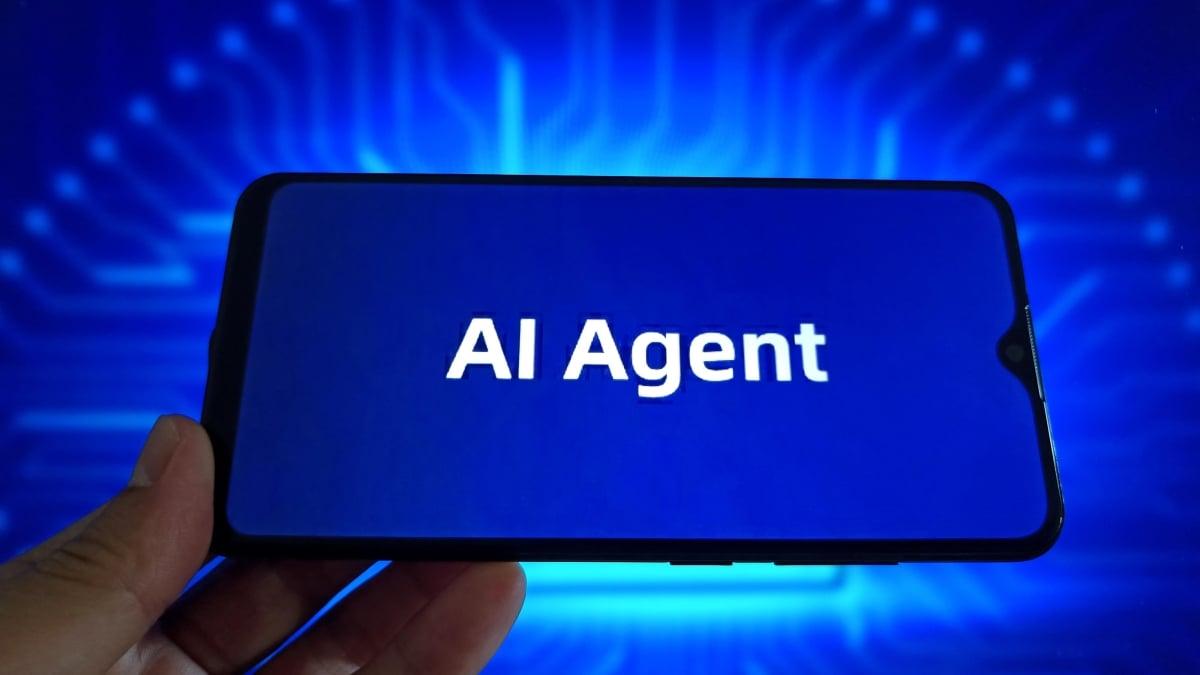AI agents are attempting to move past the hype stage and into the office, for real. Once sold as futuristic sidekicks, these systems are being embedded in everyday workflows — taking meetings, drafting emails, pulling reports, even making judgment calls within tightly defined boundaries.
They're not fully autonomous, but they don’t need to be. What matters is that they can understand context, follow through on tasks, and integrate with the tools companies already use. Whether they’re branded as copilots, digital workers, or enterprise assistants, AI agents are becoming the operational layer behind modern businesses. Yes, there are some security risks with AI tools, but for many businesses, agentic AI has already become an essential part of their workflow.
From OpenAI’s GPT-based tools to IBM’s watsonx.ai and Google's DeepMind-powered integrations, companies are considering deploying AI agents in the office.
What are AI Agents?
Agentic AI is a broad category of artificial intelligence that behaves with a degree of independence — it can plan, take actions, and respond to new information, but it’s not fully autonomous. Think of it as AI with just enough initiative to handle tasks without asking for permission every step of the way.
Within that category, an AI agent is a specific implementation: a tool or software product built to perform actions on your behalf. These agents use large language models like GPT-4o or Gemini 2.5 Pro Preview to interpret your goals and carry out tasks like emailing, scheduling, or pulling reports. Google’s Gemini in Agent Mode and OpenAI’s Operator are early examples.
The difference comes down to abstraction. Agentic AI refers to the capability — the idea that an AI can reason, plan, and act in a goal-oriented way. An AI agent is how that capability shows up in practice: a concrete product designed to actually do the work.
1. Google Gemini Agents
Google’s Gemini-powered agents are already embedded across industries — from fast food drive-thrus to finance to automotive UX. Built on DeepMind’s cutting-edge Gemini models and deployed through Google Cloud, these agents are highly adaptable and deeply integrated into enterprise workflows.
Whether handling customer queries, scanning spreadsheets, managing factory operations, or parsing supply chain data, Gemini agents are designed to scale intelligence across roles.
2. Amelia
Amelia started as IPsoft back in the dot-com era and has since evolved into a sophisticated enterprise AI agent platform —customizable, multilingual, and deeply integrated into sectors like finance, pharma, and telecom.
Mashable Light Speed
In 2024, SoundHound acquired Amelia for $80 million, betting on the growing demand for AI voice and agentic systems across industries. The deal expanded SoundHound’s reach into heavily regulated sectors and bundled Amelia’s advanced agent tech into its broader portfolio of enterprise voice solutions. With roughly 200 enterprise clients between them and a projected $150 million in revenue for 2025, the combined company is positioning itself as a serious contender in the AI agent race
3. IBM watsonx Orchestrate
IBM’s watsonx Orchestrate is a no-code platform for building AI agents that automate routine business tasks at scale. Designed for enterprise teams, it allows users to spin up custom agents that plug into existing workflows — from HR and procurement to sales and operations — with minimal setup.
The platform offers prebuilt tools for everything from candidate scheduling to approval routing, all integrated under a unified interface. According to IBM, agents built with Orchestrate resolve 94% of requests automatically, speed up onboarding by 25%, and reduce time spent on reporting by up to 88%
4. Microsoft Copilot & Azure AI Agents
Through tools like Microsoft 365 Copilot, Dynamics 365, and Azure AI Agent Service, the tech giant is turning generative AI into engines that automate everything from customer returns and HR support to financial reconciliation and field operations.
Copilot is the personal assistant, and beneath that are more specialized agents — built in Copilot Studio or Azure — trained to execute workflows, manage entitlements, and integrate across Microsoft’s enterprise stack. These agents come pre-configured or custom-built, working with Teams, PowerPoint, SharePoint, and third-party data to complete tasks with context and memory.
5. Claude by Anthropic
Anthropic’s Claude Agents are designed for high-trust enterprise environments, with a focus on reasoning, safety, and human-level collaboration. Powered by Claude Opus 4 — the company’s most advanced model — these agents are built to plan, act, and adapt across complex workflows, from customer support to code generation.
The agents excel at multi-turn reasoning and structured decision-making, with a heavy emphasis on brand safety, jailbreak resistance, and output control.
6. North by Cohere
North is Cohere’s all-in-one AI agent platform designed to replace digital busywork with intelligent automation. Built around its proprietary Command LLM, North combines powerful reasoning with industry-specific workflows for sectors like finance, healthcare, retail, and legal.
Companies like Oracle, SAP SE, Salesforce, and the Royal Bank of Canada are already deploying North’s agents to handle everything from document generation and data retrieval to decision support and customer engagement. It features out-of-the-box agents or customizable builds that connect to enterprise systems in just a few clicks.
Honorable mention: OpenAI's Operator
OpenAI’s GPT-powered agents are moving beyond the chatbox with Operator: a tool that clicks, types, and transacts on your behalf. Available to ChatGPT Pro users as a "research preview," Operator can handle everyday web tasks like ordering groceries, booking reservations, and filling out forms in real-time, all while running in its own browser window.
Operator blends GPT-4o’s language capabilities with basic interface control, creating an agent that doesn’t just suggest actions—it performs them. While it’s still early, OpenAI views Operator as a foundational step toward AI that can independently navigate digital spaces and eventually act as a stand-in for human users.
Disclosure: Ziff Davis, Mashable’s parent company, in April filed a lawsuit against OpenAI, alleging it infringed Ziff Davis copyrights in training and operating its AI systems.







